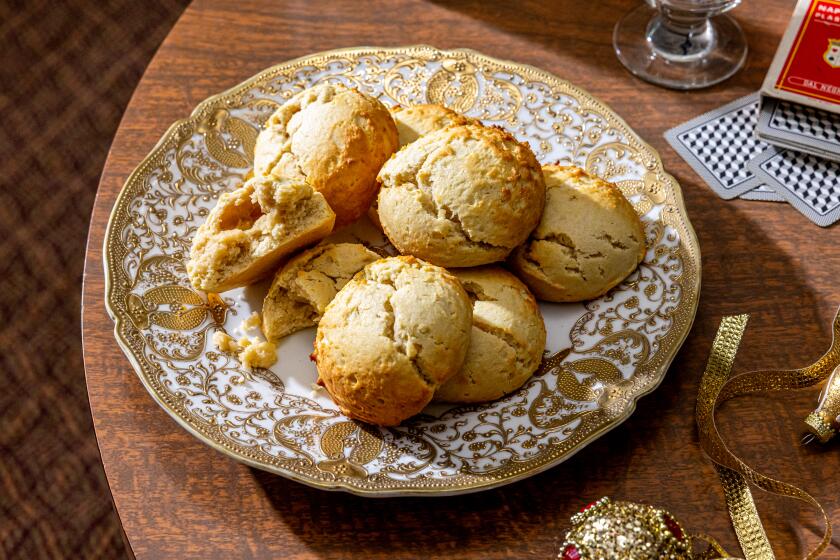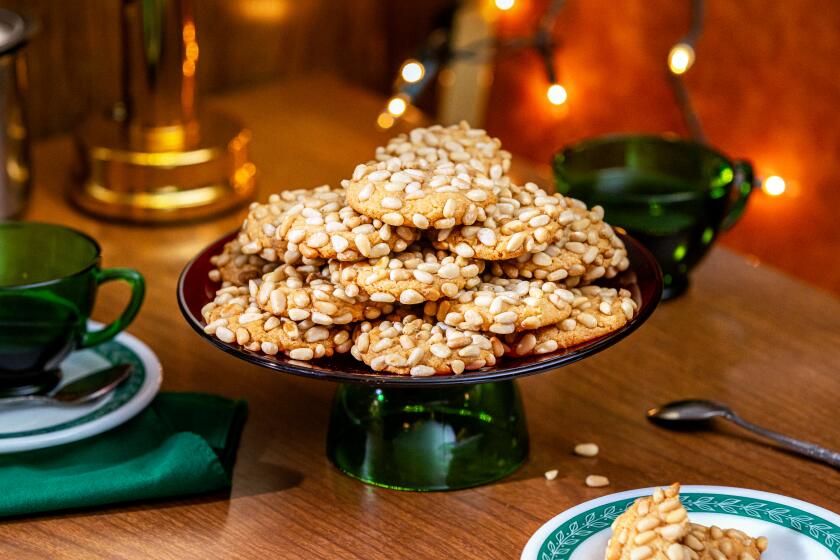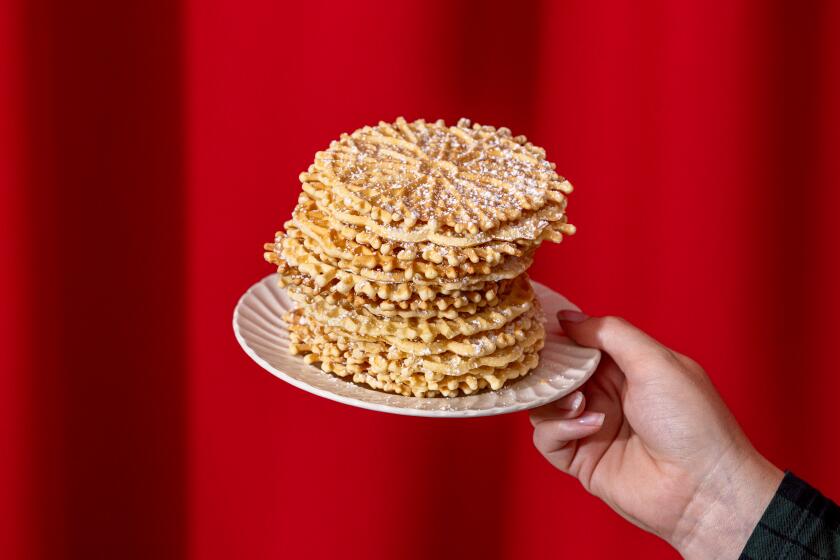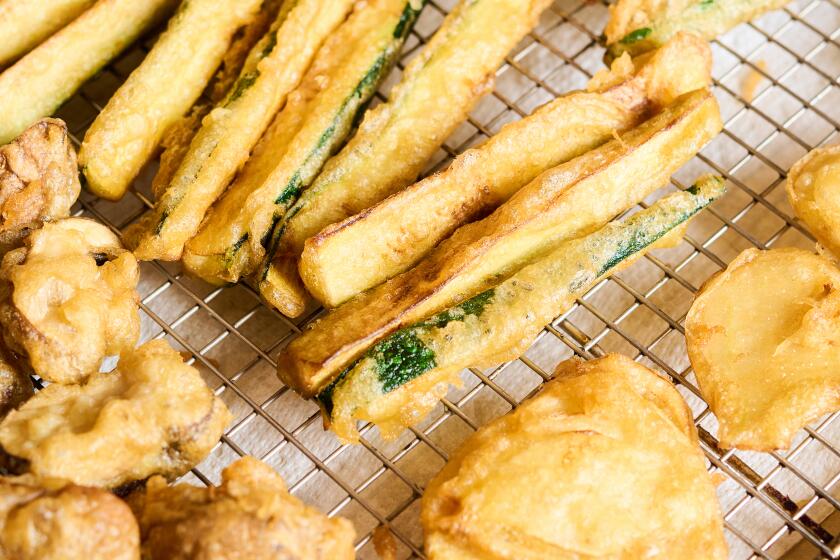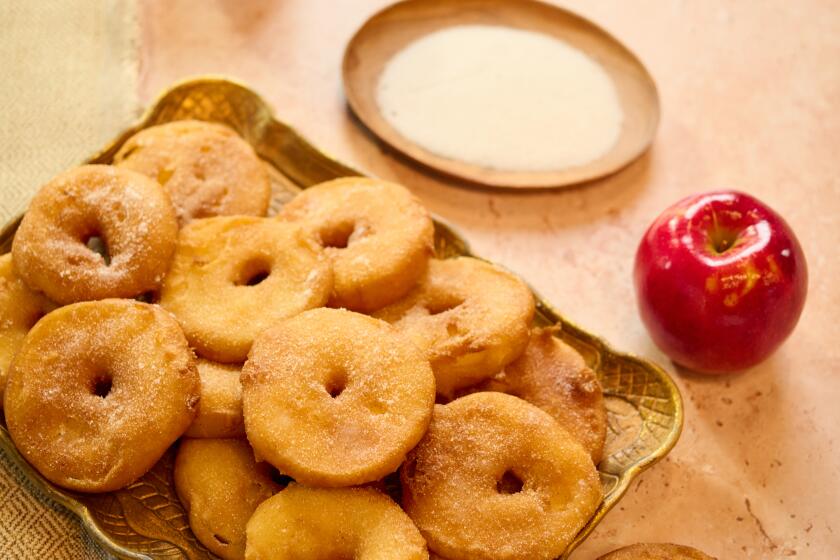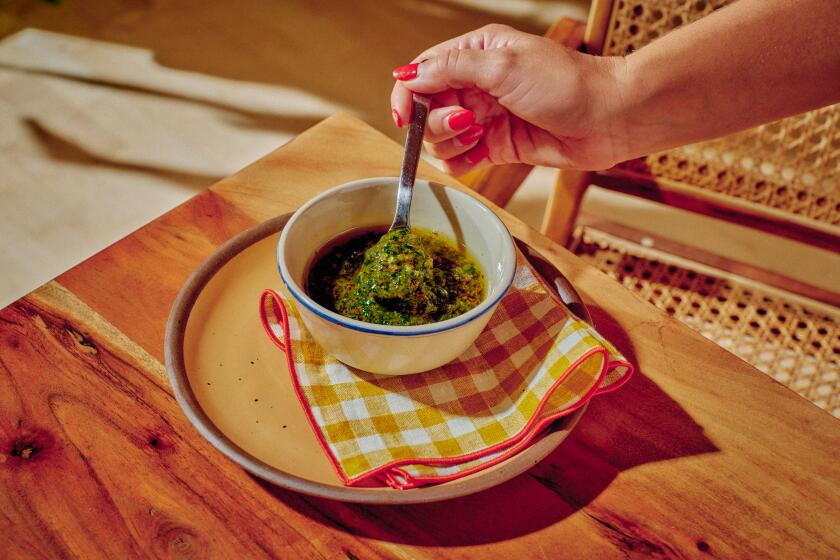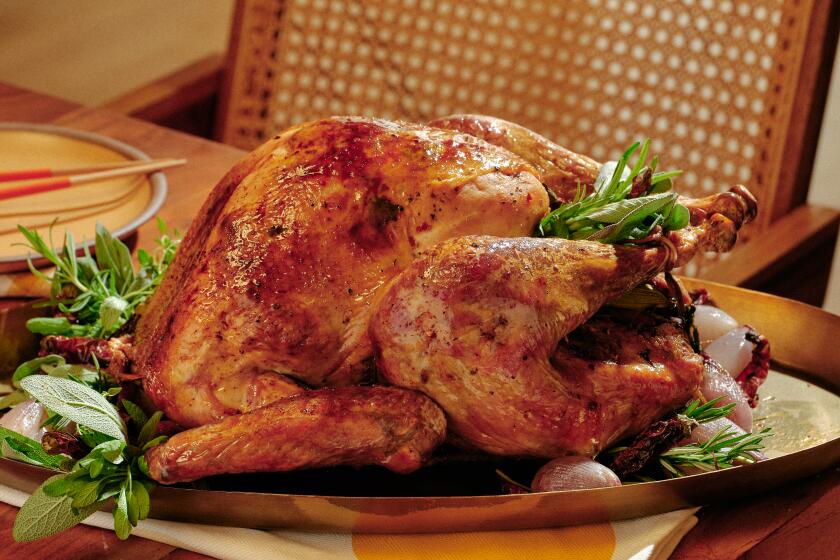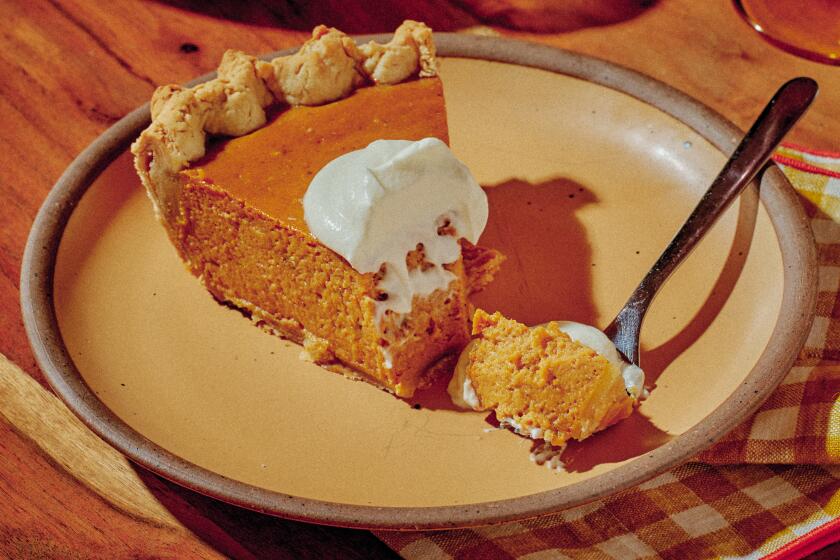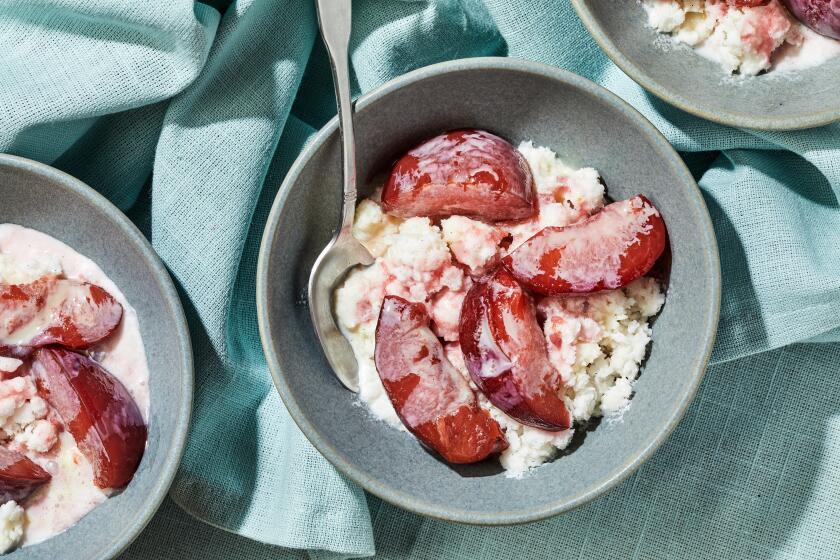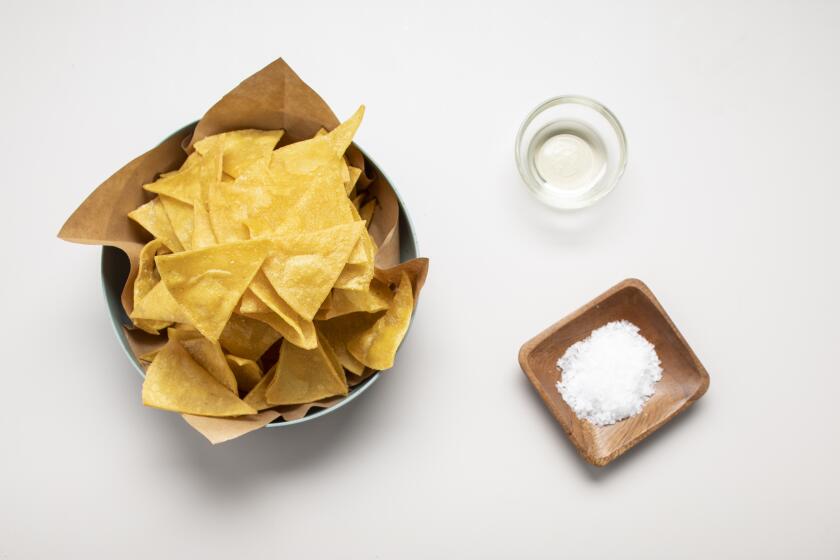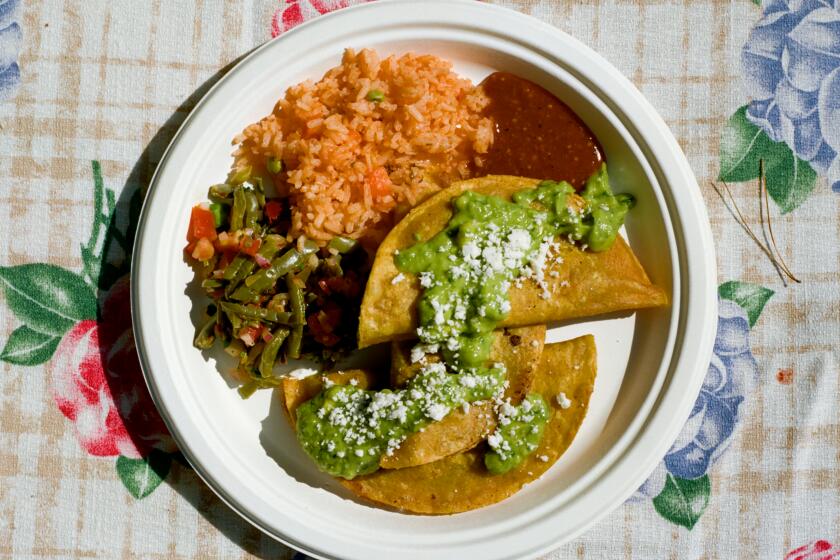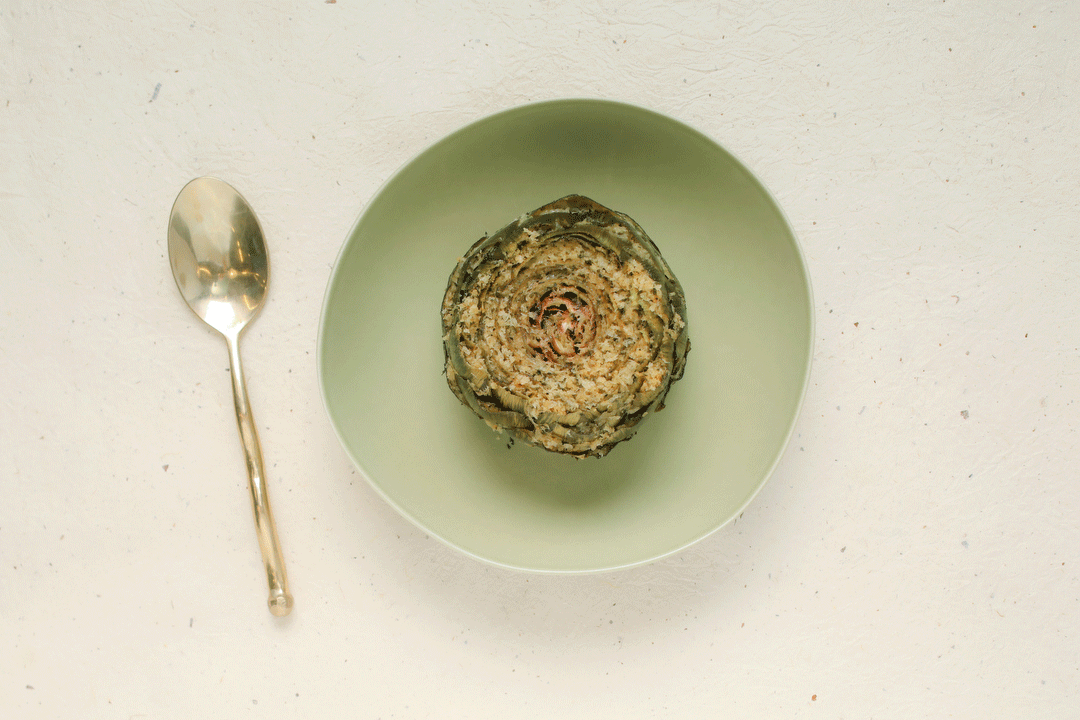Michelangela 'Lina' Pompilio's Cartellate
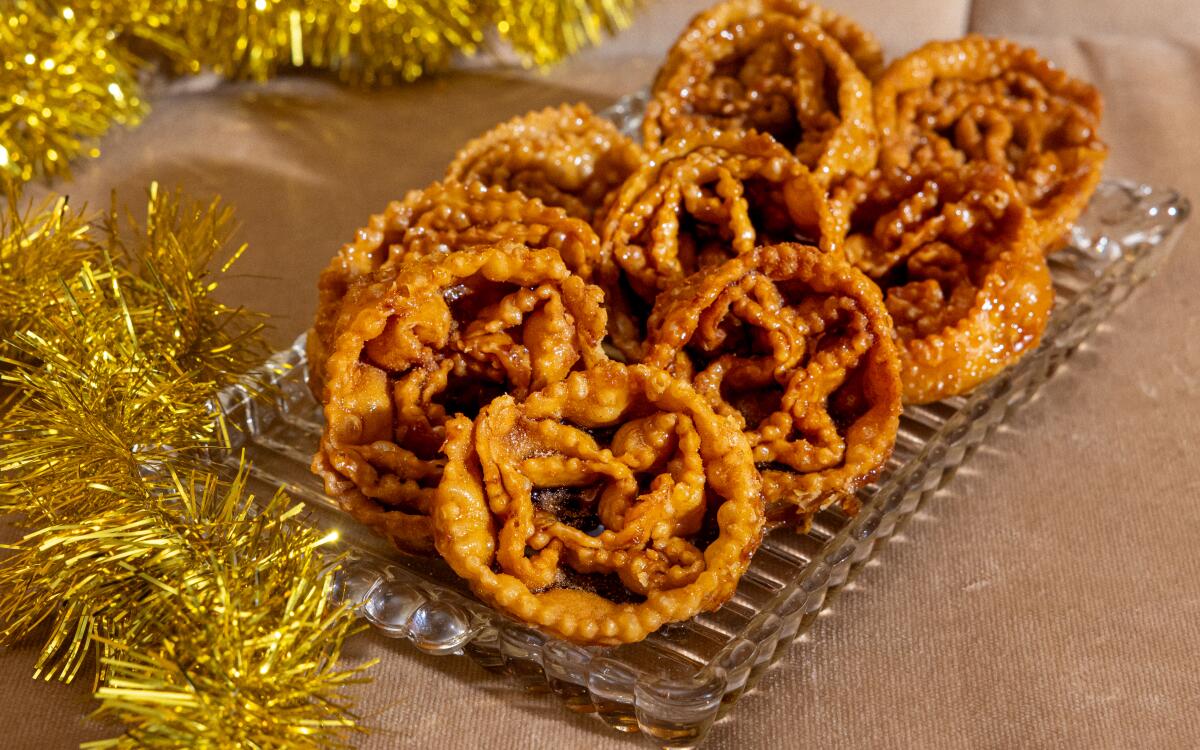
Sticky and chewy with crags of crispiness, these cookies are Christmastime must-haves across Puglia and beyond. Garibaldina member Michelangela “Lina” Pompilio, from Adelfia Canneto in Bari province, fondly remembers her mother and grandmother in the kitchen preparing them each year, and for decades she’s continued the tradition too.
Both online and among nonne, there’s a lot of discussion about using wine, grape syrup or honey for soaking these cookies. Italian vincotto is often used and can be purchased online and in many of L.A.’s Italian delis and specialty grocers. As a substitute, grape syrup or grape molasses can be found readily at smaller grocery chains Jon’s and Super King, but these cookies might also be made with a substitution of date syrup instead. Pompilio trusts the Indo-European Foods Inc. brand of grape molasses — which can also be ordered online — and insists on using Pillsbury flour over all other brands.
The dough needs to rest after mixing it before shaping, and these cookies are a lot easier to mold than it might appear when first reading the instructions. Once formed, the shaped cartellate require a minimum of six hours — but preferably overnight — to dry out before frying.
Cartellate
Warm the wine and olive oil in a small saucepan. Place the flour in a large bowl and make a well in the center. Pour the heated liquid into the well and mix with the flour by hand working outward from the center. Knead until soft and elastic, about 10 minutes by hand. Gather the dough into a loaf shape, wrap in plastic and let it rest at room temperature for at least 30 minutes.
Lightly flour a large, clean work surface, place half of the dough in the center and roll it paper-thin, about 1/10 of an inch to about 12 inches in length. Alternatively, use a pasta machine to roll out the dough.
With a fluted pastry cutter, cut the dough into strips 1 to 1 ½ inches wide and 12 inches long. Fold the strips in half lengthwise and pinch each strip together every 1 ½ inches to create little pockets all along the strip. Then roll the dough around itself in a spiral to create a sort of rose/flower shape, pinching the spirals together in a few places to help it retain its shape when frying.
When all of the strips are shaped, lay them out on a pastry board or parchment-lined baking sheet, cover with a clean dry towel and leave to dry for at least 6 hours, preferably overnight (they do not need to be refrigerated).
Line a baking sheet with paper towels. Pour oil about 2 inches deep into a heavy-bottomed, high-sided pan and heat to 350 degrees. When hot, slide a few cartellate into the oil and fry until golden brown, 1 ½ to 2 minutes each. Remove the fried cartellate to the paper towels to drain and repeat with the remaining pieces.
Heat the grape molasses or honey in a small saucepan until the syrup thins a bit. Dip the fried cartellate in the warm liquid, a few at a time, gently turning to coat them on both sides. Remove to a plate, repeat with the remaining pastries and let the pastry soak up the liquid for a few hours. Serve as is, or if you like, with a handful of sprinkles on top.
Get our Cooking newsletter.
Your roundup of inspiring recipes and kitchen tricks.
You may occasionally receive promotional content from the Los Angeles Times.


